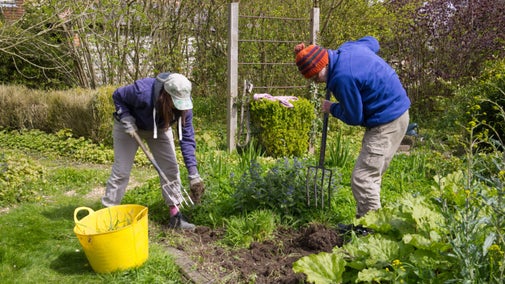
Discover more at Canons Ashby
Find out when Canons Ashby is open, how to get here, the things to see and do and more.
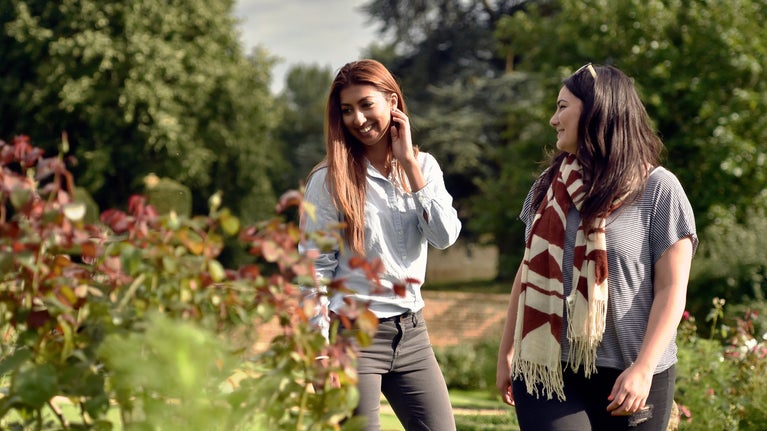
The garden and grounds at Canons Ashby provide plenty of space for all the family to have a great day out and enjoy the fresh air. There are a range of family and garden events throughout the year including tours with the head gardener and bat walks.
The formal terraced garden was created in 1710, in the time of Edward Dryden. It may have been designed by famous garden designers London and Wise, showcasing sharp lines, symmetry and formal elegance, reflecting other fashionable gardens of the time. Sadly, after centuries of splendour, the garden fell into wilderness during the 20th century. The garden was recently reconstructed, based on the plans drawn up in the late 1800s by Sir Henry Dryden.
As you wander through the garden, keep an eye out for the original 18th-century sundial, fascinating and unusual armour-style decorations above the gate posts, and the Shepherd’s Boy statue from 1713.
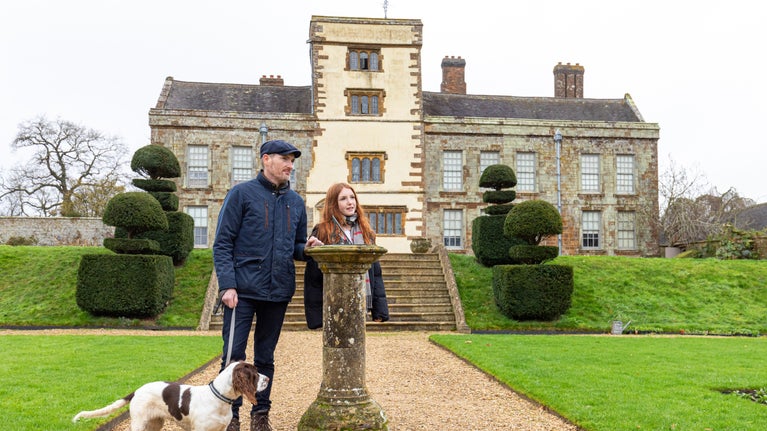
At Canons Ashby, planting takes place with nature and wildlife in mind, as well as for visitors. Plants are selected that insects and birds will love, which are grown from seed in the local area so there is less of an impact on the environment.
As you explore the garden and grounds, you may find habitat piles or bug hotels in certain places, where leaves, wood and other garden debris have been collected and left in a safe place. This provides protection for creatures like hedgehogs, small mammals and insect life in the cold winter months.
There are also wildlife homes and refuges behind the scenes, which provide places for growing biodiversity and habitats for creatures of all types.
As part of looking after the wildlife, apples and pears are left on the trees or ground. This fruit provides food for lots of creatures in the coldest months, particularly birds like fieldfares or waxwings.
The team regularly check the nest boxes in the garden and parkland. If needed, the boxes are given a clean and prepared for future lodgers. By monitoring which boxes are being used, more information can be discovered about what types of birds are living here.
There's plenty of activities to do and things to explore, to keep the family entertained all year round. With the garden, parkland and paddock, there's plenty of space for your young adventurers to stretch their legs and blow off some steam. Have a chat with the team at visitor reception when you arrive to find out what trails are available.
The Garden really comes to life in Spring with new growth. Early flowering shrubs such as Forsythia and an array of perennials fill the borders. Golden Daffodils carpet the pathway up to the house while nodding Snakes head fritillaries nod gently in the grass under blossoming apple trees. You may spot climbing roses and early Clematis along the walls or see the gardening team at work in the vegetable garden preparing the ground, sowing seeds,and planting a huge selection of vegetables ready to harvest though the summer.
The wildflowers and grasses in the Paddock begin to flower; by May we have frothy clouds of Cow parsley and swathes of pure white Ox-eye daisy alive with the sound of busy pollinators. The Paddock is mown early in the year (weather permitting) to reduce the vigour of the grass and to allow the wildflowers to grow and flourish.
Through April and May, the historic apple and pear trees on the vegetable terrace and espalier trees on the green court wall are covered with beautiful cream and pink blossom and alive with the hum of bees and other pollinators.
Please note, we have cattle grazing in the wider Parkland, so please be aware when walking through these spaces
Here are some tips to help you stay safe around the livestock you may encounter on the farmland:
Try not to startle livestock
As you’re approaching, whistle or talk to the livestock so they’re aware of your presence. If you then walk past calmly and quietly, the animals are more likely to ignore you.
Cattle may become excitable or frightened by large groups, so try to keep members of your group calm and quiet as you pass.
Don’t panic or run if cattle approach you
Cows can be very inquisitive and may move towards you, but they will usually stop before they reach you. If this happens, be confident and don’t panic. If you run, they may try to follow you.
Think ahead
Don’t allow yourself to become cornered by a group of cattle. They may just be curious, but cows pushing from the back of the herd could cause those in front to panic if they are forced too close to you.
If you find cattle blocking your way, clap your hands loudly as you approach and they should move out of your way. If not, leave the path and go round them.
Take extra care when livestock are with their young
Don’t get between mothers and their young. Most are very protective and can become aggressive. Make sure you give them lots of space.
Leave all gates as you find them
A farmer might have closed a gate to stop their livestock from wandering or left a gate open to let their animals move more freely. Do your bit to help farmers by leaving all gates as you find them.

Find out when Canons Ashby is open, how to get here, the things to see and do and more.
Canons Ashby is a two pawprint rated place. Dogs are welcome at Canons Ashby, whether it's a walk in the parkland with the family or lunch in the tea-garden whilst your dog(s) companion relaxes. Find out more about bringing your dog(s) friend for a visit.
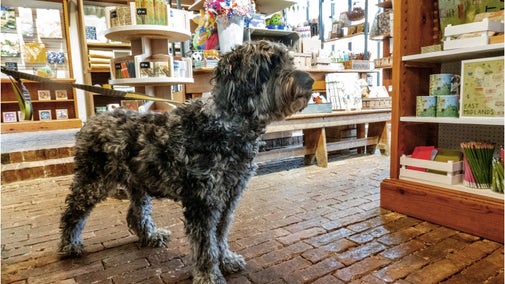
Grab a bite to eat in the tea-room, and find a souvenir to remember your visit in the Coach House shop. Head to the old brewhouse where you will now find a second-hand bookshop.

Discover family-friendly activities and days out with the kids at Canons Ashby, including nature trails, wild play and school holiday events.
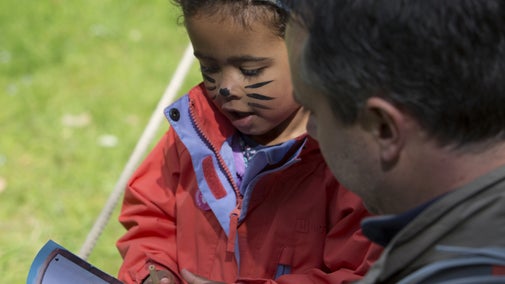
Canons Ashby was home to the Dryden family for over 400 years and has a rich history. Discover how the house developed and about the people that made the house we see today.
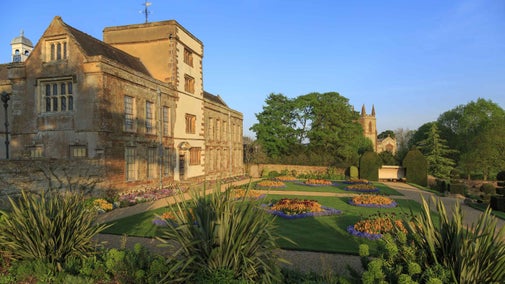
Find out more about the work the team are doing to improve biodiversity at Canons Ashby, including a recent project to restore the medieval stew ponds.

From 18th-century water gardens and Arts and Crafts landscapes to intimate woodland gardens, there are so many places to discover.
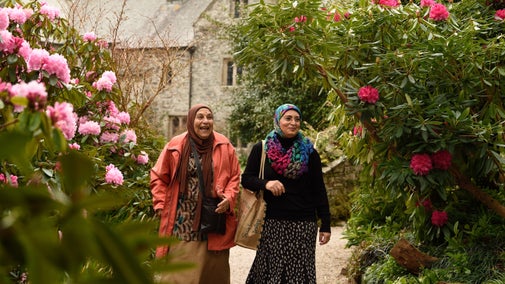
Discover our gardeners’ top tips so you can make the most of your garden, plot or window box.
